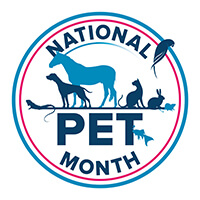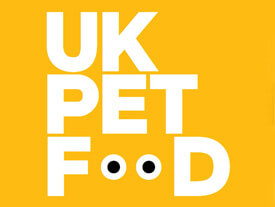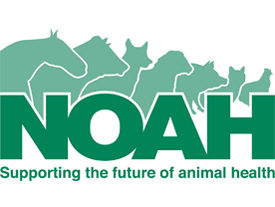Top Ten Tips for Responsible Pet Ownership
National Pet Month sponsors Medivet are a big supporter of National Pet Month's top ten tips. Read on for their advice on how to make our tips work well for you and your pets.......
We’re a big supporter of National Pet Month’s top ten tips for responsible pet ownership. They give a great overview of everything you need to consider to make sure your pet gets everything they need to stay healthy. So, here’s a bit more about how you can make those tips work for you and your pets…
1. Think carefully before getting a pet and learn about their special requirements.
What pet would suit you? Making the wrong choice could mean that you and your pet both end up unhappy so it’s important to think about their needs and how they match up with yours. If you’re at work all day then is it really a good decision to get a dog? Would you be happy to sit and groom a long-haired cat every day?
Your pet should enrich your life, so make sure your choice does just that!
2. Ensure your pet is sociable and well trained.
Early socialisation and habituation are very important to ensure that pets go on to be confident and happy. Young animals have a ‘sensitive period’ up to around 16 weeks old during which they need to experience key things. Beyond this sensitive period, new things they encounter might make them scared or aggressive.
If you take on an adult pet, you won’t be responsible for this, but you can still make sure that your new pet is given a thorough introduction to their new world and all the people in it. You also have a responsibility to make sure that your pet can be trusted around other people and their pets.
3. Provide a nutritious and well balanced diet.
Your pet can’t decide for themselves what to eat so they rely on you to make sure they get a nutritious and correct diet.
Young adult? Dental? Digestive health? We know there are a baffling number of pet foods out there and it can be difficult to know what’s right for your pet. If you’re confused about what your pet needs, speak to your vet who should be able to make a recommendation and keep you on track as your pet’s needs change.
You’ll also find, as you discover more about them, that some pets have a very stringent list of dos and don’ts when it comes to their diet: can you cope with having a freezer full of dead mice if you get a snake? Do you know what happens if your iguana gets fed animal protein? Why shouldn’t you feed rabbits a mixed ‘muesli’ style diet? Good nutrition is the basis of good health, so research your prospective pet’s diet thoroughly. You can also look into ways to save on high quality food, such as with Medivet’s and Hill’s loyalty cards.
4. Provide suitable housing and bedding.
Whether you have a dog or a rabbit, a gecko or a goldfish, they all have their own environment needs. Some of these, such as those for reptiles, can be very specific and your pet may become seriously ill if their needs aren’t met. If you do want to get an exotic pet, make sure you do your research and speak to an expert so your new pet gets everything they need.
Remember that, whatever species they are, your pet’s environment should be enriching to keep them happy and stimulated. There are a huge range of pet toys on the market to help you with this, but you could also get creative and make your own!
5. Clean up after your pet and worm them regularly.
Parasites like lungworm can make your pet very unwell so we always advise regular worming, as well as regular flea treatment. Remember, getting rid of them is a lot more difficult than preventing them!
‘Regular’ may vary depending on your pet’s lifestyle – if they’re an enthusiastic hunter then it’s best to worm them monthly as they may be eating infected prey animals. If your pet is the lazy kind, then it may be necessary to worm them only every 3 months.
6. Protect against disease. Your vet can provide you with advice.
Vaccination is a very simple and highly effective way of preventing your pet from contracting some very serious and sometimes deadly diseases. In fact, some of these diseases have no cure, so vaccination can be the only means of protecting your pet. Vaccination could be the most important thing you do for your pets.
Are you worried about over-vaccination? We can now test the immunity levels in your pet’s blood to see whether they need a vaccination.
7. Prevent unwanted litters and neuter your pet when appropriate.
Rescue centres are full to bursting with unwanted litters who can’t find loving homes and the problem is only getting worse.
Neutering your pet can have significant health and behavioural benefits, such as eliminating the risk of a pyometra (a life-threatening uterine infection) in female dogs and lessening the likelihood of cats straying and getting lost.
8. Groom your pet regularly.
Whilst some pets, such as long haired breeds, will require more grooming than others, all pets require regular grooming to keep their coats in good condition. You’ll probably find that as pets age, they’ll be less agile and will require more of a hand from you in their grooming regime.
Grooming can also be a great way to spend time with your pet and establish a bond with them.
9. Control your pet and ensure they are properly identified.
Microchipping, microchipping, microchipping! We can’t stress enough how important that tiny little chip could be if your pet gets lost. It’s the best possible way to give you a chance of being reunited with them. Pets can travel a surprisingly long way from home, so just alerting your local area may prove fruitless in getting your pet back – just look at the recent example of the tabby cat who went missing from North Wales and turned up 5 weeks later in Yorkshire!
10. Take out pet insurance for dogs, cats, rabbits and horses to cover against unexpected veterinary fees and third party liability.
It’s impossible to predict the future. That’s where pet insurance comes in. It ensures that your pet has access to all the options they need, whether it’s to treat an emergency like a car accident or to provide funds for regular treatment of a disease like diabetes. Pet insurance can give you the peace of mind that, whatever the problem, you, your pet and your vet can approach the future with optimism.


